The plethora of doggie daycare centers around the country in the last few years is nothing short of mind-boggling. But with the popularity of daycare services for dogs, there comes an unrealistic expectation –that all dogs can and should be social with others – they’re “social animals,” after all. The truth, however, is not nearly as simple or clear-cut, and many dog owners are finding themselves disillusioned and confused when their dogs fail to make the grade in dog day care skills.
Many dog parents believe that if their dog is not good around other dogs, this can be overcome by more social exposure, so they sign up for doggie daycare. Or when they get a new puppy, a super-responsible owner will get their pup enrolled in a puppy play and doggie daycare program, believing that this early and ongoing socialization will “guarantee” their puppy’s future social skills. Oh, that it were so simple! Here is Nature’s perspective on the tricky subject of dogs and social interactions. If your canine child has had trouble integrating into a dog park or daycare situation, read on.
Dogs are wired by Mother Nature to live in packs. But what is a pack, exactly? It’s an extended family of dogs, all related and familiar to one another – parents, grandparents, brothers, sisters, aunts, uncles and cousins. Day in and day out, the same dogs are in this big family. Puppies are born each season into the family pack. Puppies grow and develop through infancy, adolescence and finally into their serious adult character, whatever Nature has genetically coded for them. Once an adult, a dog’s duty is to help defend the pack. Woe to the new dog that wanders into a family territory, the adult pack members rising up and driving off the intruder. They do not welcome him in and offer him a seat at the dinner table.
But newcomers are the norm in doggie daycare and dog parks. Every few minutes, a new dog is arriving. The daycare or dog park “pack” is made up of different dogs everyday, with little to no familiarity with each other. They quickly sort out their organizational structure and then must decide to accept or reject each newcomer. Each newcomer, turn, is faced with the uncertainty of whether or not they will be accepted by the group. When the group is made up of young, carefree pre-adults, there’s usually little problem. Kids like everybody! With an older demographic, however, harmony between the dogs can become more elusive. After all, it was the job of their ancestors to drive off newcomers, not accept them!
The most difficult situation I encounter, as a daycare operator is when a wonderful client brings their young dog to daycare and all starts out well, but over time the dog becomes less and less social until they are no longer appropriate in a social daycare setting. Failing to understand this behavioral change as a result of maturation, the client, understandably, tends to think their dog is being singled out unfairly or unjustly. They are upset and confused. Everything had been fine before. In reality, however, things have changed as the result of the inevitable passage of time and the genetic code that predestined their dog’s adult personality from the get-go.
Does this mean that adult dogs cannot be successful in daycare? Not at all! Many breeds have been so domesticated and dialed-down as to smooth out the sharp edges of their original adult canine ancestors, making them, in essence, perpetual puppies. Labs, Goldens and similar breeds come to mind. No wonder they do so well in daycare! Other breeds, however, were bred to remain sharp and discerning, as there was need for this character in the job for which they were developed. German Shepherds and other serious working dogs are good examples of this. These breeds can find today’s daycare settings very challenging, especially as they mature. Many of these dogs would rather have their own room than run with the Great Unwashed (!)
So if your canine child is a daycare drop-out, do not fret. It just means he’s very smart and very grown-up. He gets an “A” in Canine. Your children will be what they will be, after all. So you may not have the doctor you were hoping for…success and happiness come in all forms. Love your dog for the dog he is, and give him the life that makes him happiest. For some dogs, that’s peace and quiet – not daycare.
Diva


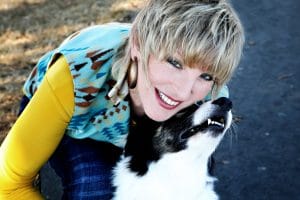
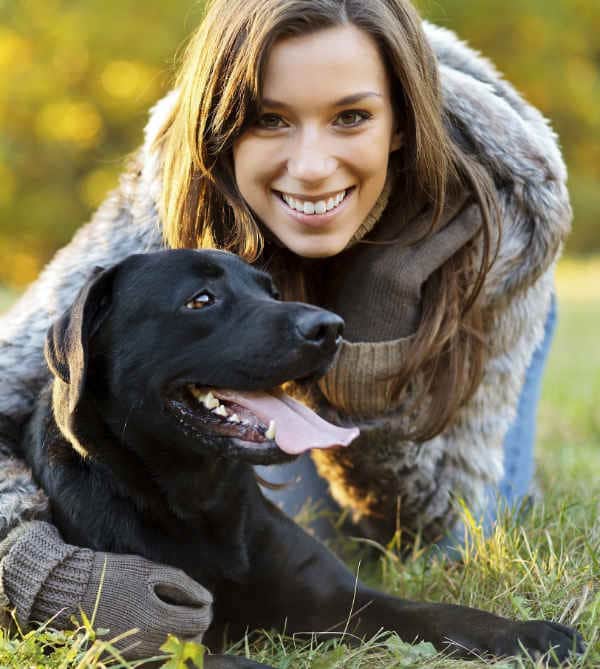
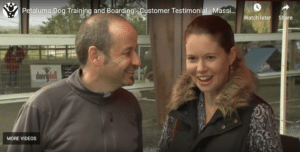
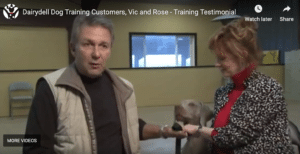
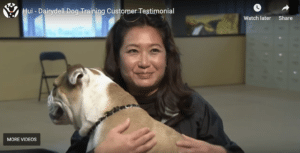
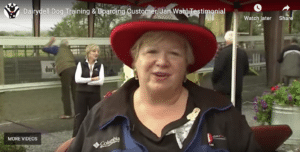



2 thoughts on ““D” in Daycare? “A” in Canine!”
Perfectly said!!
This is a great article. Thank you so much for allowing others to post this. This information is incredibly important for all daycare customers to be aware of. Thank you again, keep it up